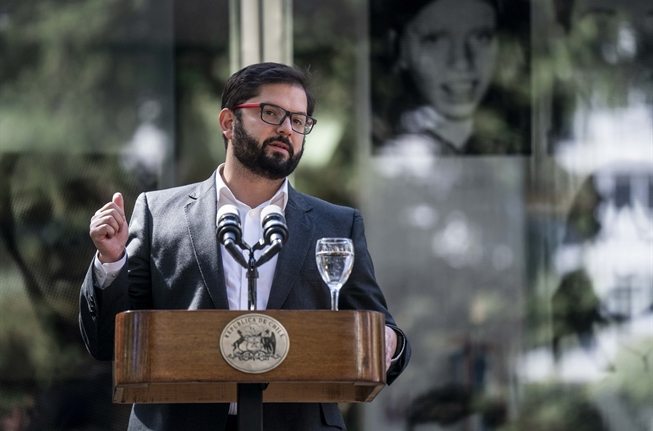
Chilean President Gabriel Boric sent Congress a bill that proposes the decriminalization of abortion by the 14th week of gestation under any circumstances.
The measure, announced on Sunday, 1, during his last annual speech to the nation, marks an attempt to rescue campaign commitments in his last months of government.
The project generated immediate reaction inside and outside the country. In parliament, parliamentarians who defend reproductive rights stirred green and purple scarves while the proposal was presented.
“Generations of women lived and fought for it. They do not at least deny them the democratic debate as citizens capable of deciding for themselves,” said Boric.
Opposition parliamentarians reacted by leaving the plenary and shouting “no to abortion!” One of those who abandoned the scene was Johannes Kaiser, an far-right deputy and presidential candidate. “Why [Boric] insists on knowing that there is no votes? Why? To insult us, ”Kaiser told reporters after the session.
Currently, abortion in Chile is allowed only in three cases: life -threatening for pregnant women, fetal unfeasibility and pregnancy due to rape. Boric’s proposal would expand this scope, bringing the Chilean legislation closer to neighboring countries such as Argentina, which legalized abortion until week 14 in 2020.
However, the processing of the proposal faces political obstacles. With low adherence to Congress, the project may not advance before the end of Boric’s mandate.
According to a survey released on Monday, 3, by the Abamo Institute, only 25% of the population supports legalization in the terms proposed. Another 55% prefer to maintain current legislation, and 19% are favorable to the total ban.
The project comes at a time when the government is trying to recover the progressive base that elected it. Measures such as a broad tax reform and the promulgation of a new constitution have been defeated throughout the term. The proposal of decriminalization of abortion can become Boric’s last effort to consolidate a leftist legacy before the November elections, which will define the new president and the composition of the congress.
The political scenario is also influenced by movements in neighboring countries. In Colombia and Mexico, recent decisions of the judiciary and the legislature expanded reproductive rights. In the opposite direction, Argentine President Javier Milei has adopted restrictive measures. He reduced public resources to contraceptive methods, including the so -called “the next day pill.”
“Demographic policies should be rethought beyond the atrocity of killing human beings that develop in the womb of their mothers,” Milei wrote in an opinion article.
Although Milei has focused on fighting inflation, the results of a recent vote in Buenos Aires indicate that their support base can grow in the legislative elections of mandate, which can pave the way for a more conservative social agenda.
For Constanza Schonhaut, director of the Human Corporate Human Rights Organization, the debate on abortion is increasingly internationalized. “What happens in Chile can influence other countries and vice versa,” he said. “In an increasingly connected world, it’s not just feminist organizations that coordinate internationally.”
In Chile, the proposal must boost electoral debates. Conservative opposition sees in the project a point of mobilization of its bases. The left, in turn, tries to use the theme to recover the support of sectors who frustrated with the government’s remains in previous promises.
Depending on the progress of the project in Congress, abortion may become one of the main topics of the presidential campaign. The proposal of decriminalization, even with few chances of immediate approval, presses pre-candidates to position themselves on the subject.
The government did not indicate a date for voting on the text. According to interlocutors of the Palace of La Moneda, the project can be debated this semester in legislative committees.
Despite the resistance expressed in Parliament, the proposal accentuates the polarization around social themes in the country. With the closing of Boric’s mandate approaching, the debate on abortion can serve as a thermometer for the electoral dispute that will define the directions of Chile from 2026.
With information from Reuters
Source: https://www.ocafezinho.com/2025/06/05/boric-lanca-projeto-para-legalizar-aborto-no-chile-as-vesperas-da-eleicao/

